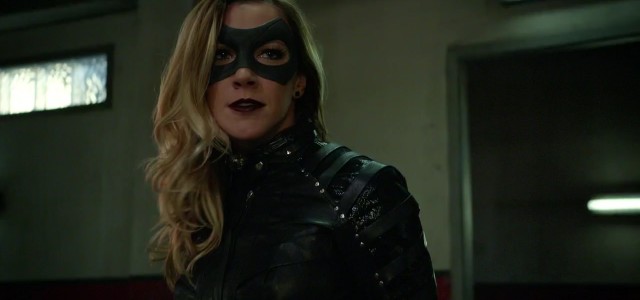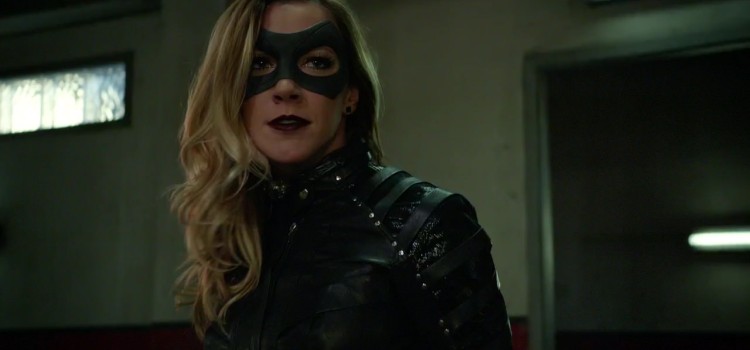


<<Return to Page 1
Tactic: Why did Laurel have to die?
This is the most prominent death on the series to date. That’s saying something for a show that has managed to kill a main character in its first season, execute Oliver’s mother in its second, and kill off three of DC’s most notable villains in Deadshot, Ra’s al Ghul, and Amanda Waller over the last two years. On an action-adventure show, death is a powerful and available tool. It demonstrates the stakes of what’s going on and the cost that any of the characters can and has to be willing to give at any time.
It’s also become a dreadfully boring, predictable, and overused gimmick.
Not a gimmick in that the deaths aren’t supposed to have meaning. Instead, one in which death is supposed to create an instant, deeper value to a given moment or episode or entire season. Or worse, supposed to correct or atone for a character or story arc that was no longer working (or never worked). A gimmick in the sense of writers getting complacent or dry of ideas and needing to shake things up, a shock to the status quo to explore facets of the characters or give them new motivation in moving forward.
The idea itself isn’t a bad one. Death should have a place in stories, and it is a vital part of the human experience worth exploring. To see the impact of one’s life on those around them can prove for astonishing storytelling and potentially spin characters off in unexpected directions. What works about death on a show like Game of Thrones, where it is decidedly commonplace, is that it is an outcropping of story and extension of character, as well as plays into both a randomness of the extinguishing of life and a product of the atmosphere of the world of the show. It’s a place at war and loss is an inevitable aspect of such a brutal state.
With the world of the DCwU, the so-called Arrowverse, a death like Carter Hall’s in the second episode of Legends is a gutpunch because it’s unexpected. Did it have a true emotional weight? Not particularly because we were still getting to know Carter, as well as those around him. Still, it works for the narrative. Sara’s death was an all too obvious play that one wishes they could’ve devised a better solution to motivate characters in certain directions. What worked about it, though, was it really drove home the seriousness of the work and lifestyle Team Arrow had chosen: vigilante games can get you dead.
Yet, we’ve come to expect a death each year on Arrow: Robert Queen, Yao Fei, Billy Wintergreen, Edward Fyers, Tommy Merlyn (season 1); Moira Queen, Isabel Rochev, Shado Fei, Count Vertigo, Mark Scheffer/Shrapnel, Frank Bertinelli (season 2); Sara Lance, Ra’s al Ghul, Maseo Yamashiro, Akio Yamashiro, Floyd Lawton/Deadshot (season 3); Laurel Lance, Amanda Waller (season 4)
What’s made it seem even more of a gimmick is the number of times characters have cheated supposed deaths on the series only to return, not to mention the characters that have died and actually come back to life. In a world of magic where a body can be resurrected and our heroes can cross into the spiritual realm to return a soul to that body, death has far less shock value. Even Felicity walking again within a few episodes of being permanently paralyzed has diminished consequence to dangerous levels on the series.
It’s not for nothing that many assumed when Laurel asked for a favor from Oliver, and what was shared between them was hidden from the audience before Laurel’s system crashed, that the two had concocted a quick fake death scheme to try to gain some kind of advantage against Damien Darhk. Though the showrunners keep espousing the permanency of this decision, they’ve clearly given themselves some kind of out should they ever need or want to reverse the choice.
No doubt the effect of Laurel’s death is going to weigh heavily on everyone for the remainder of the season. The potential for strong characterization and intense interactions is not only high but had to prove too enticing to pass up. The unspoken closing scene between Quentin and Oliver as father learned of his daughter’s death by the look of devastation on Oliver’s face was but the first, and a powerful one at that. Is it going to bear out the fruit they hope?
What’s the long-term cost for such short-term jolt? Especially when it felt like they were really just starting to get a handle on how best to write the character, even with limited screentime. Death will only carry a scene, an episode, a season so far. In a week that saw a lot of female characters exit shows by way of the Grim Reaper, it’s also part of an unfortunate trend. Perhaps it’s time to consider other methods.
Will I miss Laurel? I think I can say yes. It’s a shame that they weren’t able to do more with her over the years or in the future. With a death of this magnitude, we can anticipate some good story beats and hopefully some of the better character work we’ve seen out of the show in the past. I sincerely hope they resist the urge to fill the Black Canary mantle any time soon. They’ve shown the Canary can be a legacy outside of one person, and one has to imagine that someone or others will have been inspired enough to take up her cause. It’s worth it, out of respect for Laurel, to let the mask and the name lie, if not retire it completely.
Farewell, Dinah Laurel Lance.















